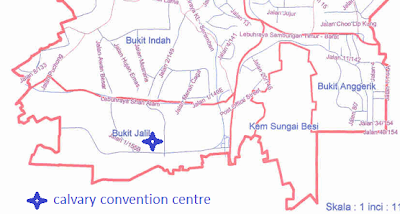Its perhaps time for Malaysian Indians to emulate their Chinese brethrens and dump MIC.
COMMENT
 The
Malaysian Indians should emulate their spirited Chinese brothers. Once a
leading member of the Chinese business community declared that the
Chinese don’t need Chinese politicians and ministers to represent them.
The
Malaysian Indians should emulate their spirited Chinese brothers. Once a
leading member of the Chinese business community declared that the
Chinese don’t need Chinese politicians and ministers to represent them.That statement sapped the smugness off the MCA. Really, Indians too don’t need to be representation by the MIC.
Maybe they can do so through Nor Mohamad Yakob, Naina Merican, Azeez Rahim, Zambry Kadir?
They too can also talk direct to Malay leaders the way the Chinese do.
Just see how Tony Fernandes (AirAsia) does it and Ananda Krishna (Measat) seems to know how to do it. So to does Ravi Menon (Ara Corporation), Arumugam and G.Gnalingam (Westport). Even the one time driver Kenneth Eswaran (Maicci president) knows how too.
They ALL know how to talk to Malay leaders. So, forget MIC and forget its president G Palanivel.
Vigneswaran’s capitulation
They should now demand to know what actually happened to the RM100 million suit against Samy Vellu and the seven MIED trustees.
How much money was actually lost? And how will the Indian community be compensated for the loss?
High Court Judge Abdul Aziz Abdul Rahim granted MIED’s application for leave to withdraw its suit over alleged mismanagement which it claimed caused the education arm of the MIC to incur losses.
The suit was withdrawn last Friday after former MIC Youth chief SA Vigneswaran, who initiated it, was appointed to sit on the MIED board as observer for one year from May 12.
Will the Indians now accept that their interest in the field of education has all this time been depending on the resolve of one Vigneswaran?
And now that he has wilted, their hopes are also dashed?
Don’t you want to graduate from being a seller of pirated CDs to owning airlines, from advertising salesman to owning ports, airports, controlling the media?
Vigneswaran agrees to withdraw because he is now appointed a board member as a mute observer.
You do know that an observer is not allowed to talk, unless invited by the board chairman to speak.
I think public spirited Malaysian Indians must now check up the story behind Vigneswaran’s capitulation.
Who’s behind Deloitte?
I think they should also check out who is behind Deloitte Corporate Solutions Sdn Bhd which has been appointed as the management consultants/management accountants for MIED.
MIED is now charged to adhere to full disclosure of major transactions and matters relating to MIED at board meetings.
Come again, did I hear this wrong? You mean all this time it hasn’t and that must be one of the reasons why Vigneswaran brought the suit in the first place.
How is Vigneswaran’s personal constitution? Is he of unimpeachable character?
Vigneswaran’s withdrawal must have brought relief to former MIC president S Samy Vellu, his successor, Palanivel and team-mates M Mahalingam, T Marimuthu, Dr SK Ampikaipakam, Karnail Singh Nijhar, K Kumaran and G Vadiveloo and audit firm Kumpulan Naga.
Counsel Gurupatham told reporters that his client withdrew the suit in the best interests of the Indian community so that MIED would be run in a transparent manner.
What about the RM100 million?
The other counsel for MIED, Vasanthi said the judge was pleased that settlement had been reached for the benefit of MIED, and granted the application to withdraw the suit with no legal costs.
In the suit, MIED claimed the defendants had breached fiduciary and statutory duties, and failed to discharge their responsibilities as trustees and auditors, which caused the institute to suffer huge losses.
How big was the loss to the Indian community?
MIED also wanted a court order to make Samy Vellu compensate all the financial losses incurred by the institute in the time he had administered MIED as its chairman as well as special and general damages over the alleged losses, which it claimed totalled RM100 million.
Is Samy Vellu going to return all monies or profits made from MIED, either by himself or through family members and close friends?
The excerpt is from the writer’s blog sakmongkolak47. The writer is an FMT columnist.




 'What can I do? My Husband Needs A Son Anyhow'
'What can I do? My Husband Needs A Son Anyhow'



















